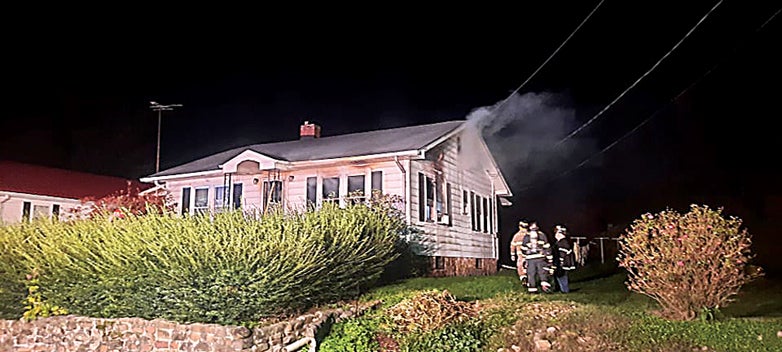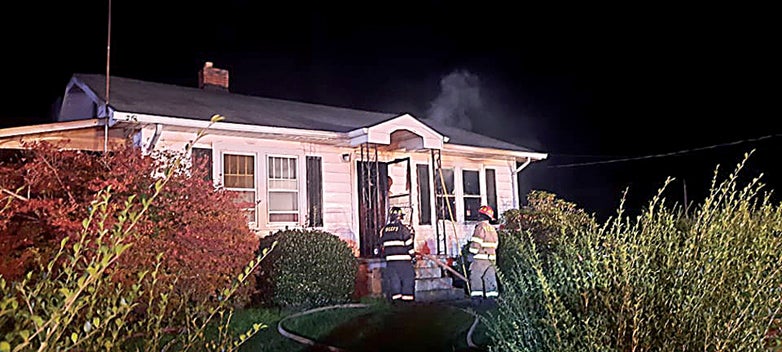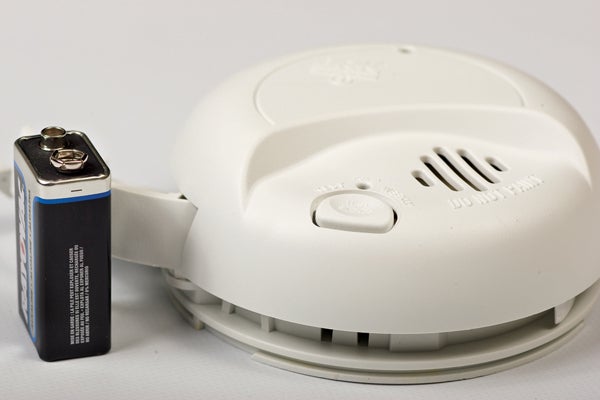House fires can be destructive and deadly
Published 11:42 am Friday, November 5, 2021
|
Getting your Trinity Audio player ready...
|
BY ROZELLA HARDIN
Editorial Director
rozella.hardin@elizabethton
Earlier this week 83-year-old Mary Lou Livingston died as the result of a house fire. Mrs. Livingston was home alone at the time of the fire, and when law enforcement and volunteer firemen answered the call received around 9:30 p.m. Sunday, it was too late for Mrs. Livington. She was found unresponsive in her house, and attempts to resuscitate her were unsuccessful.
The cause of the fire is still under investigation.
Mrs. Livingston lived on Dayton Hayes Circle near the 1900 block of Gap Creek Road.
Mrs. Livingston’s husband, Richard Livingston, 88, was and still is undergoing rehabilitation at a local nursing home. The sad part is that when and if he is able to leave the nursing home, he has no home to go to as the fire gutted and destroyed the interior of his house. A niece of Mrs. Livingston, Sue Pierce said “what happens to him now is up in the air. At this point we are just trying to arrange for a service for my Aunt Mary Lou.”
Mary Lou was described by her neighbors as a kind, compassionate person. “Richard took her to church as long as she was able to go. When Richard couldn’t take her, she walked to Zion Baptist,” said a friend, Patsy Johnson. Last year, she had suffered a broken hip, but had recovered, but not enough to do many of the things she enjoyed doing.
Mary Lou is survived by two sisters, Peggy Stevens of Brown’s Branch, Hampton, and Hattie Bell Poarch, Elizabethton, both in their 80s. An older brother lives in Washington state.
Mary Lou Livingston was the first fire call of the week for local volunteer fire departments, but not the last. On Tuesday, volunteer firemen were called to a house fire at 154 Holston Mountain Road. where David and Victoria Tinsley sustained burns in the house fire. The couple were taken to the hospital for treatment of their injuries. Luckily, their three children were uninjured.
According to a report from the Carter County Sheriff’s Dept., a neighbor said the couple came to his house next door yelling for help. Both had suffered burns to their bodies. The neighbor immediately called 911 and rendered aid until emergency responders arrived.
First Responder Brian Henson said it appeared the fire began in the kitchen and was accidental.
Data from the National Fire Protection Association and the American Red Cross reveal that fires in homes happen more often during the winter months.
A spokesman for the Tennessee Fire Association said two of the leading causes of home fires are most prevalent in the colder months, the first being improper home heating. “Additionally as weather conditions deteriorate, residents will spend more time indoors, leading to the threat of fire from improper and dangerous cooking practices.”
A dispatcher with the West Carter County Volunteer Fire Department, who was on duty earlier this week, was quick to add: “The tragedy of home fires is that they can happen to anyone, anywhere – even in areas that may not experience traditional winter weather like snow and ice. The weather is only one factor. Home fires upend lives every day, causing heartbreak, and destroying everything that makes four walls into a home. It’s sad when a home is lost, but it’s even sadder when a life is lost.”
The National Fire Protection Association reports that heating equipment is involved in one of every six reported home fires and one in every five home fire deaths.
“October and November are months of changes, and there are things to watch for,” volunteer fireman say. Two key ways to help keep your family safe is to have working, regularly tested smoke alarms and a practiced fire escape plan. This is a recommendiation from all volunteer fire departments in the county as well as the Elizabethton Fire Dept.
Some important safety tips from the American Red Cross (these apply year round regardless of the weather):
– Place smoke alarms on each level of your home, especially inside hallways and bedrooms. Test them monthly and change the batteries at least once a year on models that require it.
– Check the manufacturer’s date on smoke alarms. If an alarm is 10 years or older, it will likely need to be replaced because components such as batteries can become less reliable.
– Have an escape plan with at least two ways to exit every room in your house during a fire.
– Select a meeting sport at a safe distance away from your home, such as a neighbor’s house. Make sure everyone knows where it is.
– Practice your plan with all family members involved.
– Keep materials like curtains, sofas, clothes, and papers at least 3 feet away from space heaters.
– Have fireplace flues and chimneys and other fuel-burning appliances, such a your furnace inspected by a professional every year before heating season.
– Always plug space heaters directly into a wall outlet rather that a power strip. Overloaded power strips are a fire hazard.
– Don’t use candles for light in the event of a power outage. Instead, use battery-powered flashlights or lanterns.
– Follow all safety rules and recommendations when using portable generators and operate them outside only. Keep generators at least 20 feet away from buildings and never operate a portable generation inside a home, garage, basement, crawlspace, shed, or on a porch close to a house.
A reminder: When your set your clocks back this weekend, check your smoke detector. Make sure it works.
Also, if you know an elderly person living alone, check on them regularly, especially if you do not see them out or a light on in their home.








